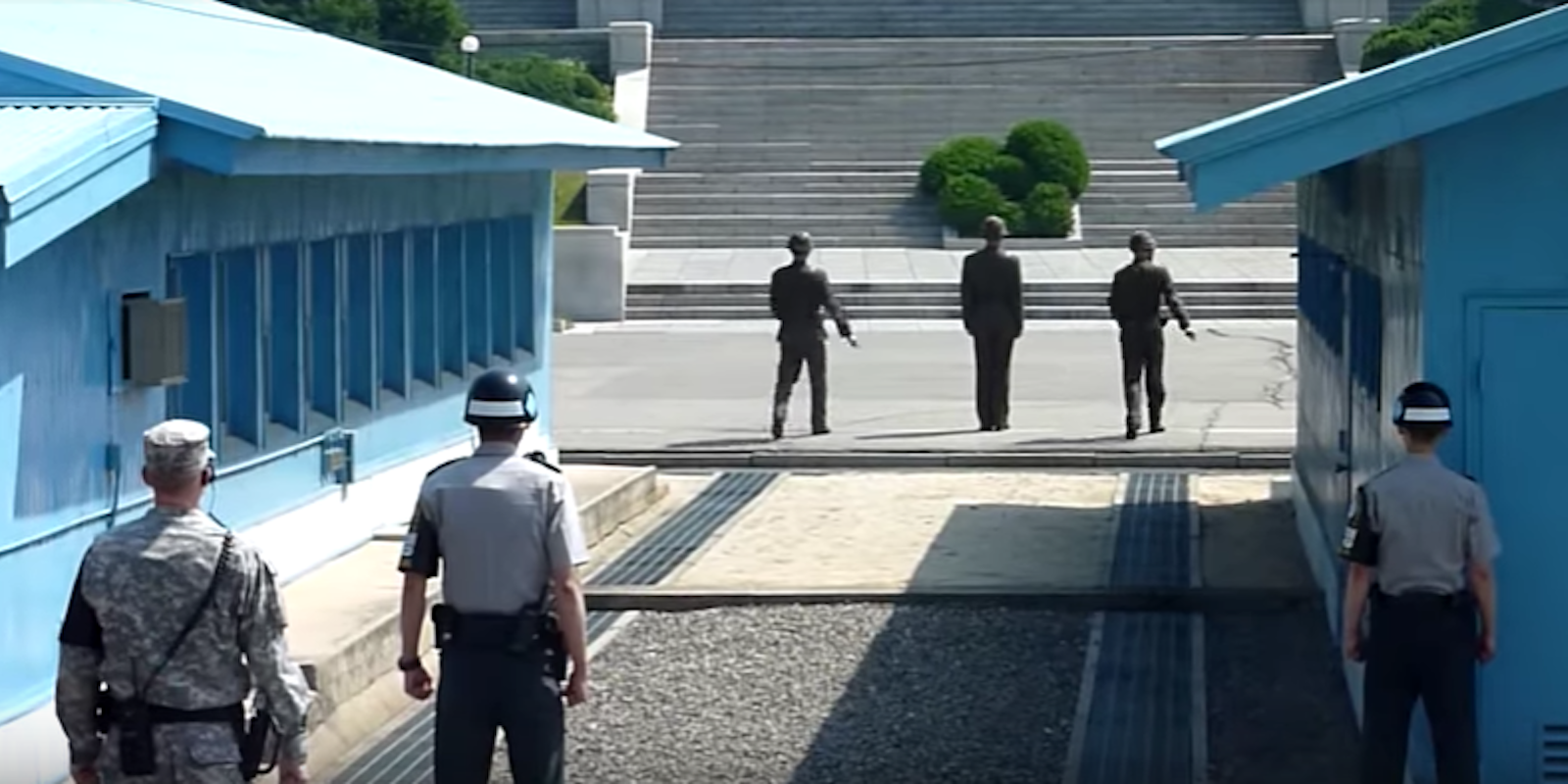The potential for the United States and North Korea to work out their differences under President Donald Trump appears to be almost zilch.
Worldwide condemnation of North Korea reached a historic high this month following a missile test and a string of assassinations linked to its leader, Kim Jong-un.
South Korea’s spy agency on Monday reported that five senior security officials in Pyongyang were executed after making false reports to Kim Jong-un. South Korean intelligence also reported that it believes Kim Jong-un ordered the death by poison earlier this month of his estranged half-brother Kim Jong-nam, though investigations are still underway in Malaysia, where the attack took place.
Tensions between Malaysia and North Korea have increased due to the investigation of the assassination, and Malaysia was forced to recall its ambassador to North Korea from Pyongyang on Feb. 19.
Scheduled talks in New York City between North Korean diplomats and former U.S. officials were botched on Friday after the visas of the two envoys were canceled.
Neither the State Department nor the White House has commented on what lead to the visas being canceled.
Even if the talks had happened, some experts believe they would have had very little weight on the future of U.S.-North Korea relations. Rodger Baker of Stratfor, a geopolitical intelligence platform, told the Daily Dot over the phone that the informal talks in New York City would have little impact because they would not have involved anyone currently active in the State Department or the Trump administration.
The futility of the talks is compounded by the Trump White House moving forward on what could be a huge shift in U.S. policy towards North Korea, including military and non-military actions.
“One of the things the new presidential administration was concerned about was that informal talks could be an attempt to pre-empt any type of assessment the White House has underway,” said Baker. “These talks tend not to accomplish anything.”
The Trump administration in January initiated a full review of the U.S. policy towards North Korea, and Baker said the report is due by the end of this week. In the short period of time after the review was initiated by the Trump administration, North Korea engaged in a test-firing of a ballistic missile, and the nation’s leader has allegedly ordered the assassinations of many individuals he considers a threat, including his top security officials and his half-brother.
Every nation appears to be waiting for the U.S. to make the first move on North Korea. China is in the early stages of debating a dramatic reversal of its policy towards North Korea all the while taking into account a more aggravated relationship with the U.S. under President Trump. Kim Jong-un has not met China’s President Xi Jinping once in the six years he’s been in power. South Korea, whose president was impeached back in December, is also headed toward a possible regime change. Trump’s suggestion that Japan and South Korea develop nuclear weapons, if either country follows through, would be both China and North Korea’s worst nightmare.
“We’re at an interesting moment with North Korea, with the United States at the center of everything that is going on,” said Baker. “A lot of countries don’t have a policy yet [on North Korea], and when they do they’re going to have to compare it to each other.”
Going back to the drawing board on North Korea isn’t necessarily a bad thing, Baker insisted.
“Over the past 10 to 15 years, most of the strategies the United States has taken towards North Korea have failed,” said Baker. “And that leaves open the possibility for some radical changes in how the U.S. deals with North Korea.”
Trump—who once referred to Kim as “the maniac in North Korea making missiles”—nonetheless confused many when last week he said he would “never say no” to a meeting with the North Korean dictator. (The president did add that “it was very late in the picture.”) Trump condemned North Korea’s missile strike, which occurred during a weekend visit by Japan’s Prime Minister Shinzō Abe and his wife to Mar-a-Lago, and has said the U.S will stand by Japan “100 percent.”
Trump has historically been more suspicious of South Korea and China’s actions in the region. The president believes South Korea should pay more for security and that China could solve “the problem” of North Korea’s hostile actions as a regime if they wished.
North Korea is reliant on China. China could solve this problem easily if they wanted to but they have no respect for our leaders.
— Donald J. Trump (@realDonaldTrump) March 30, 2013
How much is South Korea paying the U.S. for protection against North Korea???? NOTHING!
— Donald J. Trump (@realDonaldTrump) March 9, 2013
China has been taking out massive amounts of money & wealth from the U.S. in totally one-sided trade, but won't help with North Korea. Nice!
— Donald J. Trump (@realDonaldTrump) January 2, 2017
Does this mean that the United States will antagonize South Korea and China in future decisions involving North Korea? It’s not quite that simple. Baker cautions against taking Trump’s older tweets as an indicator of what’s to come given that so many things appear to be in flux.
“I don’t want to belittle the presidency of the United States, but we have to be cautious about taking past statements by the president as future indications of foreign policy,” Baker said.
